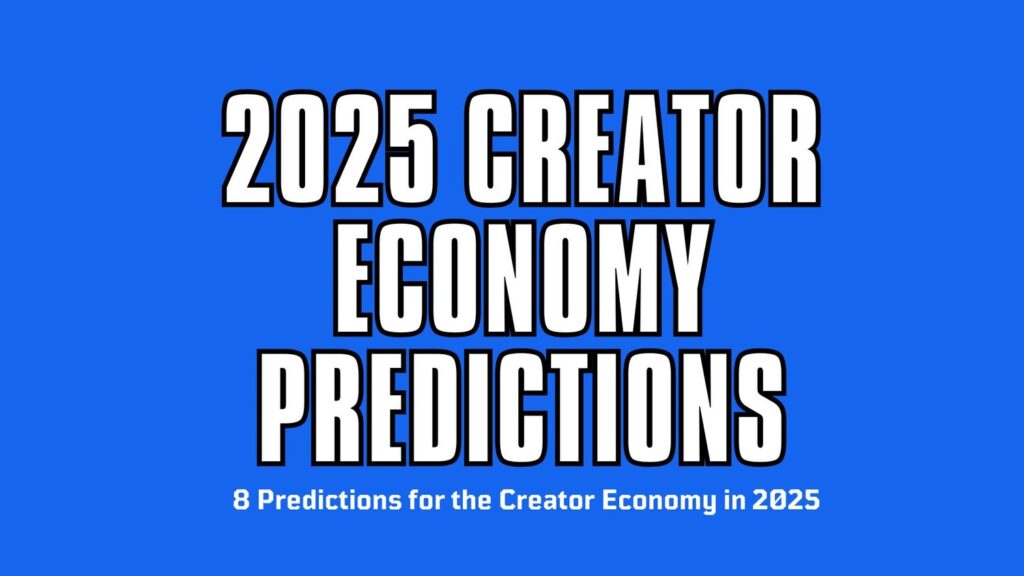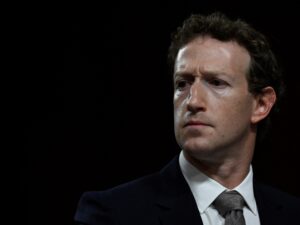
5. More Creators Will Embrace Affiliate Marketing as a Revenue Stream
Affiliate marketing is the third most popular way for creators to earn money, following sponsored content and platform payments, according to eMarketer. While its position will remain steady, the share of revenue from affiliate sales will rise for creators in 2025.
This growth will be fueled by several factors: a larger creator pool competing for sponsorship dollars, the rise of TikTok Shop, expanded affiliate opportunities on YouTube and Meta, and a continued shift toward performance-based partnerships. Notably, two of the first M&A moves in the creator economy this year have been focused on companies driving bottom-of-the-funnel results through creators: Later’s $250 million acquisition of Mavely and WhatNot’s $265 million raise.
For many creators, especially long-tail creators, sponsored content can be inconsistent, and platform payouts are becoming less reliable. Affiliate marketing offers a more proactive solution, with benefits like creative freedom that direct brand partnerships and platform payouts don’t offer. With more success stories emerging, expect affiliate marketing to shed its “dirty word” stigma and gain wider adoption by creators in 2025.
6. Podcasting Gains a Larger Share of Influencer Marketing Budgets
The 2024 presidential election, dubbed the ‘podcast election,’ highlighted the power of podcasts, with both President-elect Donald Trump and Vice President Kamala Harris leveraging major shows as part of their campaign strategies. If podcasts can influence elections, they’re certainly capable of driving product and service sales.
In 2025, more influencer marketers will allocate budgets to podcasters, especially those with video-first shows and niche audiences. Brands will collaborate with podcast creators in an omni-channel approach.
Creators will promote brands through host-read ads and integrations during episodes and expand these promotions to social media, where they also have loyal audiences. 80% of podcast listeners say they follow their favorite podcast personalities on social media.
7. The Fediverse Gains Ground in the Creator Economy
The Fediverse, a decentralized network of platforms like Mastodon, PixelFed, PeerTube, and Flipboard, gives creators an alternative to traditional social media. Unlike traditional platforms, the Fediverse allows cross-platform communication via open protocols like ActivityPub, meaning users can interact seamlessly across different networks.
As centralized platforms face algorithm changes, shifting moderation policies, and even the threat of bans, the Fediverse is emerging as a promising alternative for frustrated creators. It offers interoperability, greater control over their data, and increased flexibility.
While monetization options remain limited, initiatives like Meta federating Threads and Flipboard’s new app Surf, which aggregates content from decentralized platforms, are poised to bring the Fediverse into the broader creator economy conversation.
8. Reddit Will Connect Creators and Brands for Collaborations
Reddit has been investing heavily in tools for brands, such as Reddit Pro, a suite of features to help them grow their presence. However, it still lacks a dedicated solution for creator-brand collaborations—a standard offering on platforms like Meta, TikTok, and Snapchat.
Introducing a marketplace to connect brands with Reddit-native creators could bridge this gap, aligning with Reddit’s mission to support brands, creators, and users alike. Many brands are eager to collaborate with Reddit creators, but the platform’s unique environment makes it challenging to identify the right partners or assess their willingness to collaborate.
By the end of the year, expect Reddit to launch a solution that simplifies discovering and connecting with creators. This initiative will likely complement its ad business with a creator-focused advertising solution, mirroring Meta’s Partnership Ads and TikTok’s Spark Ads.











More Stories
Facebook Just Got Rid of Fact Checkers, Here’s Why
Creator Economy Predictions for 2025🔮
10 Smart Ways to Boost Your Income on TikTok in 2025